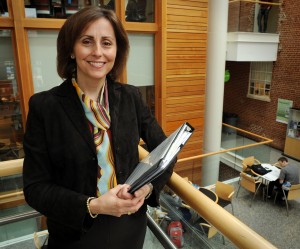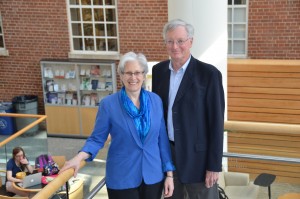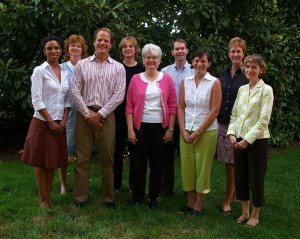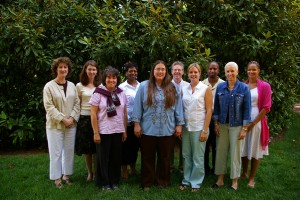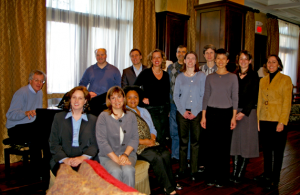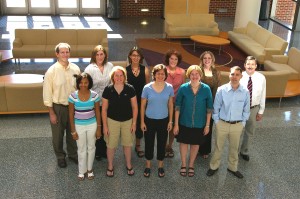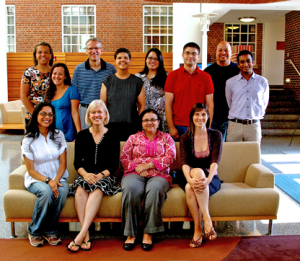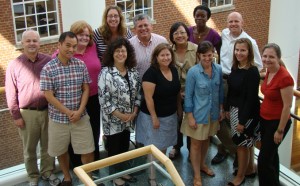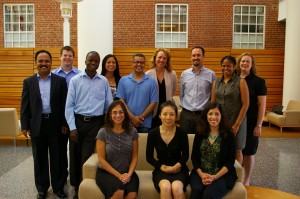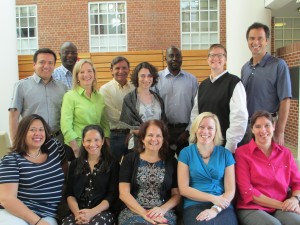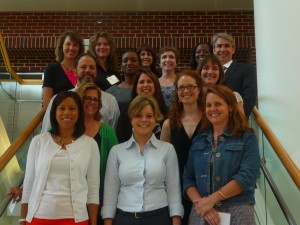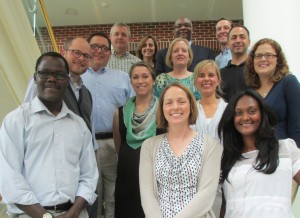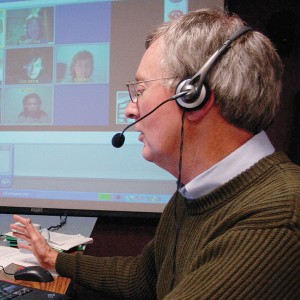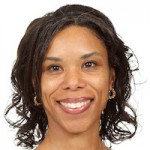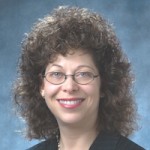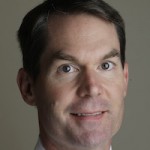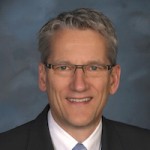The Gillings School's Doctoral Program in Health Leadership
May 4, 2015
.
When the Gillings School’s Executive Doctoral Program in Health Leadership began in 2005, students were required to carry two laptops — one contained only the software that was needed to participate in “distance learning.” Now, a decade and 62 alumni later, the program leads the way in using technology to enhance education.
“Making smart use of technology is the way to reach working professionals who are out in the field, where we need them,” says Suzanne Babich, DrPH (formerly Suzanne Havala Hobbs). “That technology allows them to continue work lives in their communities while obtaining a doctoral degree. You can’t teach leadership didactically; it has to be learned experientially, in a rich environment that our virtual classroom makes possible.”
Babich is clinical professor of health policy and management and nutrition at the Gillings School.
The three-year, cohort-based, online program, which confers a Doctor of Public Health (DrPH) in health administration through the School’s Department of Health Policy and Management, prepares mid-career professionals for senior-level positions in organizations that aim to improve the public’s health. Students continue to work in their state or country of residence, but gather at the Gillings School three times a year, for four days each visit.
Babich has led the program from the beginning. She was co-director in its first year and will step down from her directorship this summer. She received her own doctorate in the program’s first incarnation as a traditional residential learning experience.
“The program was established to address an urgent need for leadership development among the U.S. senior public health workforce,” she says. “But mid- to senior-level working health professionals on a leadership track, who are holding demanding full-time jobs, had a difficult time interrupting their careers to come to Chapel Hill for 18 months of school.”
Babich says the Gillings School was far ahead of the curve in online education.
“We re-engineered the program, developed a competency model and then set out a whole new curriculum, for which classes were designed from scratch to be delivered by Internet video,” she says.
She also says one unique program element is that diversity is a given.
“Having people from different parts of the world with different work experiences is a pillar of the program design,” Babich says. “The more unique voices we can bring to the virtual classroom, the richer everyone’s learning experience is.”
10 classes of public health leaders
.
Students from such diverse locales as Papua New Guinea and Kazakhstan have studied in the program.
Inaugural program director Ned Brooks, DrPH, retired professor of health policy and management, is proud that the program has provided inspiration and role-modeling for other universities to develop high-quality online doctoral programs. “The primary impact of our program, however, is that we produce phenomenal graduates who are making a difference throughout the world,” he says.
Lisa Koonin, DrPH, is one of those graduates. Koonin, a 2013 Gillings School alumna who is acting director of the Influenza Coordination Unit at the Centers for Disease Control and Prevention, says that the executive leadership program provided her with critical information, insights, training and opportunities to become a more effective leader.
“I use the skills and knowledge to which the program introduced me — including decision making, strategic planning, managing organizational change and leading large groups of people — over and over again, particularly in my current leadership position.”
Koonin says that her cohort was as important as members of the faculty.
“My colleagues had different life and work experiences, and they work in different sectors than I do,” she says. “Their insights and experiences rounded out the program for me and provided me with learning beyond a traditional classroom.”
Pam Silberman, DrPH, Professor of the Practice of health policy and management, has co-directed the program since January 2015 and will become director in early summer.
“Our experienced faculty members are training the next generation of health and public health leaders, who are working in any number of health-care fields — industry, clinical settings, traditional public health,” Silberman says. “The faculty’s expertise and engagement — and the fact that we attract exceptional students who strive to make a difference — are at the heart of the program’s phenomenal success.”
—Michele Lynn
Graduates of the executive doctoral program in health leadership are state, national and global leaders. Among them are:
Nicole Bates, DrPH (2008), is director of global policy and advocacy at The Bill and Melinda Gates Foundation.
Sarthak Das, DrPH (2012), is regional director of the Southeast Asia-Pacific at the Clinton Health Access Initiative.
Lisa Koonin, DrPH (2013), is senior adviser for the Influenza Coordination Unit at the Centers for Disease Control and Prevention.
Mike Stobbe, DrPH (2008), is an Associated Press medical writer.
John Wiesman, DrPH (2012), is Secretary of Health for the State of Washington and adjunct assistant professor in health policy and management at the Gillings School.
Mollie Williams, DrPH (2014), is senior director at Planned Parenthood Federation of America.
Rachael Wong, DrPH (2010), is Secretary of Hawaii’s Department of Health.
Carolina Public Health is a publication of the University of North Carolina at Chapel Hill Gillings School of Global Public Health. To view previous issues, please visit sph.unc.edu/cph.

